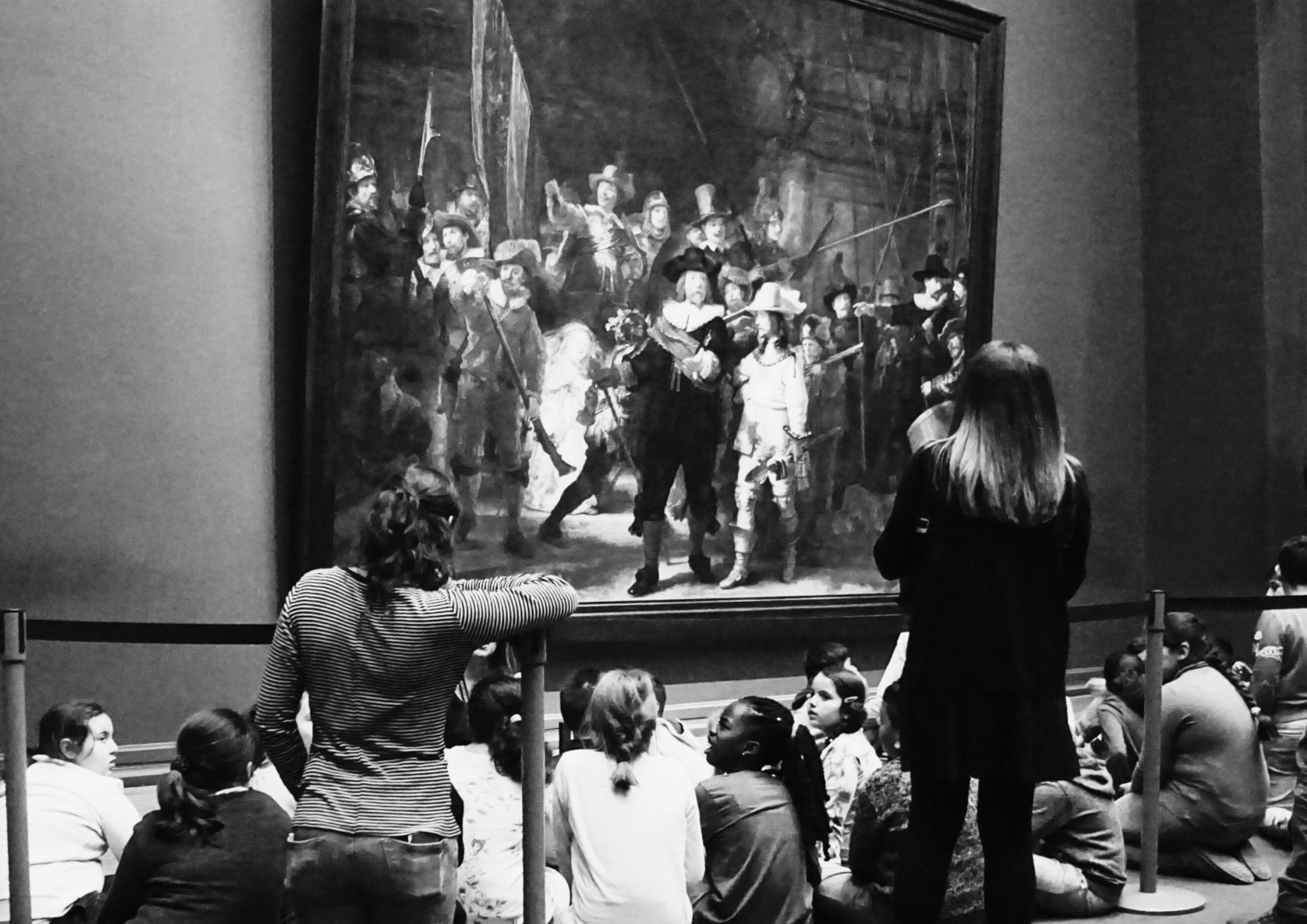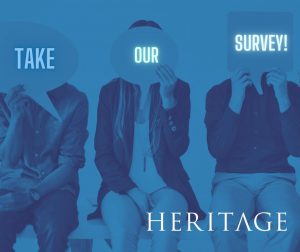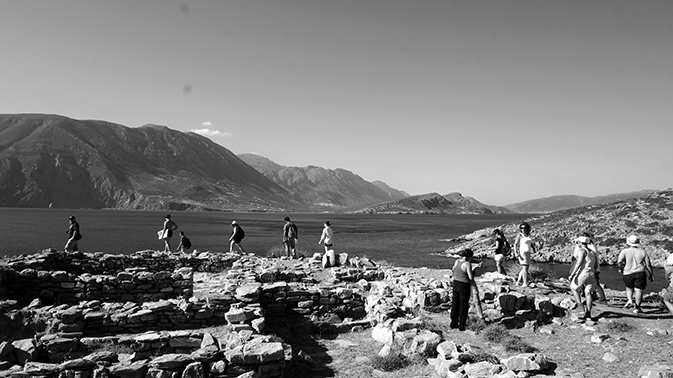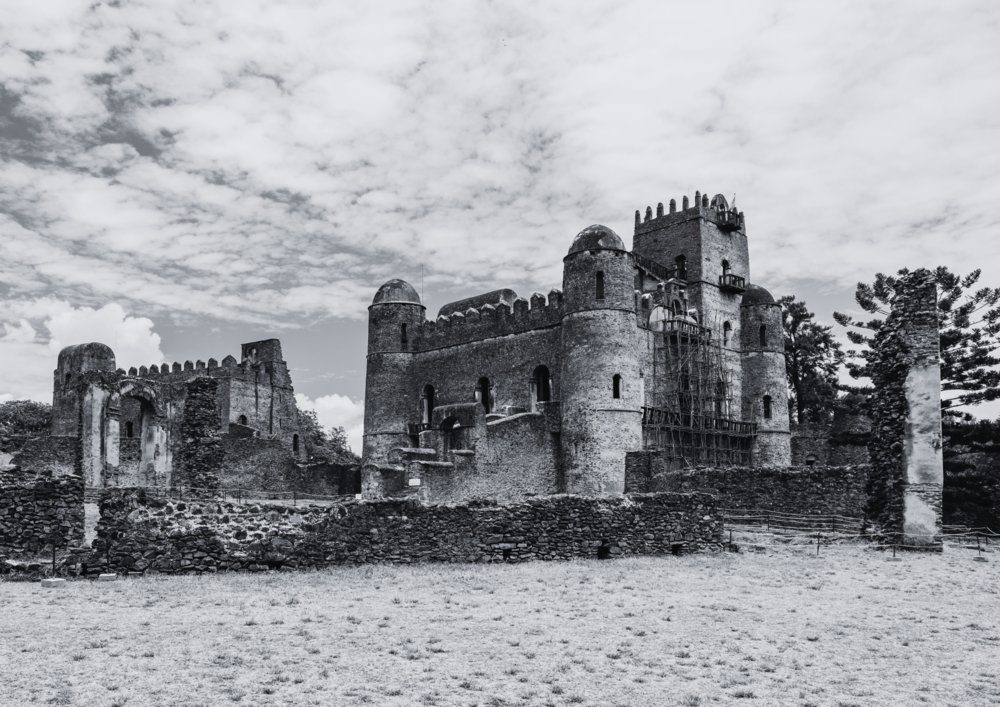: Workshops
HERITΛGE trains Ukrainian Museum professionals
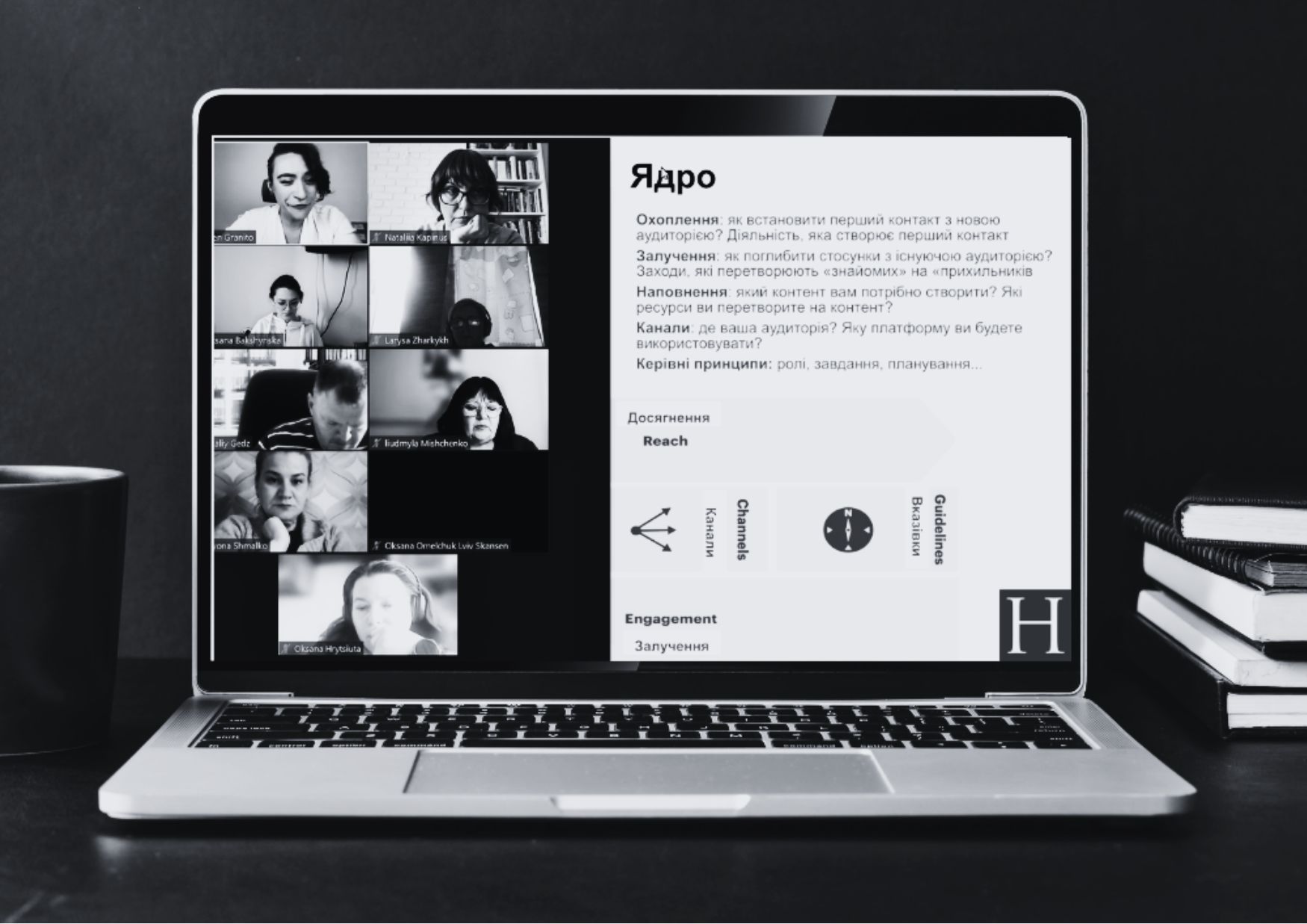 The Heritage Management Organization (HERITΛGE) is happy to announce the successful completion of the first part of “Digital Museum: Storytelling, networks, and funding for Ukrainian museums”, a training course for Ukrainian museum professionals. The course is part of “Culture Helps / Культура допомагає” – a cooperation between Insha Osvita and zusa, co-funded by the European Union.
The Heritage Management Organization (HERITΛGE) is happy to announce the successful completion of the first part of “Digital Museum: Storytelling, networks, and funding for Ukrainian museums”, a training course for Ukrainian museum professionals. The course is part of “Culture Helps / Культура допомагає” – a cooperation between Insha Osvita and zusa, co-funded by the European Union.
Digital Museum offers free training to 32 museum professionals from 14 regions of Ukraine. HERITΛGE for the first part of its training modules has provided training on fundraising and digital storytelling, while experts from Ukrainian partner institutions (the Charitable Foundation Shevchenko Hai, the Klymentiy Sheptytskyi Museum of Folk Architecture and Life, the NGO New Museum, the Museum Crisis Center, and the Territory of Terror Memorial Museum of Totalitarian Regimes) have trained participants on collection digitization, digital revitalization of exhibitions in small museums, online museum portals, and oral history and documentation.
“The Digital Museum initiative is one that HERITΛGE is very proud to be part of. The war in Ukraine has resulted in the destruction and displacement of many Ukrainian museums, especially in the east of the country. These museums, whose collections are lost or evacuated and stored for safety, struggle to survive. Their role of bringing people together around their shared history is essential now, when many Ukrainians are displaced and need support to maintain the connection with their identity and culture,” said Maja Kominko, Director of HERITΛGE’s International Projects.
The Digital Museum training program is the result of cooperation between HERITΛGE, New Museum ( an NGO that manages the Museum Crisis Center and is a partner of Lviv’s Territory of Terror Memorial Museum), and the Shevchenkivskyi Hai Charitable Foundation (at the Klymentii Sheptytskyi Museum of Folk Architecture and Rural Life in Lviv). It is designed to develop the capacity of Ukrainian museums in digital storytelling and virtual exhibition projects in order to increase the online presence of Ukrainian culture. Participating professionals will develop their fundraising, partnership-building, and networking skills to enable museums to expand their activities and attract more resources to preserve and promote Ukrainian culture.
About Culture Helps: Culture Helps is co-funded by the European Union under a dedicated call for proposals to support Ukrainian displaced citizens and the Ukrainian Cultural and Creative Sectors. The project is a cooperation between Insha Osvita (UA) and zusa (DE).
Empowering heritage leaders with fundraising strategies and best practices
Twenty one Heritage Managers from Africa (Cameroon, Egypt, Ghana, Kenya, Malawi, Nigeria, South Africa, Swaziland, Zimbabwe), Asia (Afghanistan, Iraq), and Europe (Greece, Ukraine, United Kingdom) took part in HERITΛGE’s 3-day online workshop on “Successful Fundraising for Heritage Managers: Strategies and Best Practices” from 22 to 24 March 2024. During the workshop, participants acquired a strong understanding of how to develop and execute effective fundraising strategies, with the aim of increasing their organizations contributed revenues and its global impact.
Workshops participants successfully developed and implemented strategies in the core principles of fundraising, as well as effective approaches to resolving ethical dilemmas. They also honed their collaboration skills and techniques in relation to executive and voluntary leadership and were trained in crafting and presenting a persuasive case for support through prospect research.
Additionally, the workshop instructors, Linda C. Hartley and Jennier E. Herring, skillfully guided attendees in the art of cultivating and approaching potential donors, mastering the art of making personal donation requests, and successfully obtaining grants from foundations and corporations.
Shaping the Future of our Training in North America: Your Voice Matters!
At HERITΛGE, we’re on a mission to empower heritage professionals across the world. As we expand our presence in North America, we recognize the importance of understanding the unique needs and challenges faced by heritage professionals in the region. That’s why we’re reaching out to you – the experts at the forefront of heritage preservation – to help us shape the future of heritage management training.
Your Voice, Our Vision:
North America boasts a rich tapestry of cultural heritage, from historic landmarks to indigenous traditions. To ensure that this heritage is preserved and celebrated for generations to come, we need your input. By participating in our brief survey, you’ll have the opportunity to share your insights and contribute to the development of training programs that are tailored to the needs of heritage professionals in the US, Canada, Mexica, and the wider region.
Your responses to our short survey will guide us in identifying areas for improvement and developing new initiatives that better serve the heritage community in North America.
A Chance to Win
As a token of our appreciation for your participation, we’re offering two (2) lucky participants the chance to win a scholarship to a HERITAGE online training workshop of their choosing. This scholarship, valued at $3,000, provides access to world-class training opportunities designed to enhance your skills and expertise in heritage management.
Take our Survey!
Simply click here to access the survey and share your valuable insights.
We would be very grateful if, upon completion of the survey, you shared the link with your network of heritage professionals to ensure we reach as wide a sample as possible.
Stay Connected
Be sure to follow us on LinkedIn for updates on the survey results and announcements of the scholarship winners. Together, we can make a meaningful impact on the preservation and promotion of North America’s diverse cultural heritage.
Introducing our Conservation II: First Aid for Finds Workshop
The importance of conservation for heritage preservation and management cannot be overstated. Conservation of cultural heritage is not merely about preserving physical objects; it is about safeguarding the messages and values embedded within them.
To delve deeper into this vital field, we are thrilled to announce our new workshop, Conservation II: First Aid for Finds.
This workshop, scheduled for 12-14 April 2024, is an online training program that allows participants from around the globe to engage in an immersive learning experience.
Conservation aims to maintain both the physical and cultural characteristics of an object, ensuring that its intrinsic value remains undiminished over time.
Led by Dr. Alexis Stefanis, Assistant Professor at the Department of Conservation of Antiquities and Works of Art at the University of West Attica, it will focus on providing step-by-step instructions on the best practices for caring for freshly excavated archaeological and historic objects. Moreover, it will address the delicate task of preserving objects belonging to collections that have been recently damaged, as well as offering insights into administering first aid measures to architectural heritage.
Throughout the workshop, participants will delve into essential processes, including preparation, application of treatments, and monitoring. Dr. Stefanis, with his wealth of experience in research projects and numerous publications on conservation, restoration, and rehabilitation of architectural heritage, will guide participants through these intricate procedures.
Find out more information and apply here by 31 March 2024.
**This workshop accompanies our Conservation I: Introduction to the General Principles of Cultural Heritage Conservation workshop that will take place in May 2024.
Enhancing Ethiopia’s Cultural Heritage: A Strategic Imperative
By Xanthippi Kontogianni*& Mina Morou**
Ethiopia’s rich cultural diversity and heritage are cornerstones of its global identity, steeped in historical significance and natural wonders. However, preserving and managing this invaluable heritage necessitates meticulous planning and collaborative efforts at both national and regional levels.
In Ethiopia, a federal state divided into 14 regions, the responsibility for safeguarding this heritage lies with the Ethiopian Heritage Authority at the national level and the Culture and Tourism Bureaus distributed across the regional landscape. HERITΛGE, recognizing the pivotal role of regional involvement, embarked on a mission after its inaugural in-country workshop in July 2023 in Addis Ababa. This mission focused on augmenting the strategic planning capacities of Ethiopia’s Culture and Tourism Bureaus, fueled by HERITΛGE’s mapping results.
Led by Ethiopia’s Project Manager, Xanthippi Kontogianni, the HERITΛGE team has meticulously navigated Ethiopia’s heritage landscape since its inception in January 2023. Their dedicated efforts encompassed an exhaustive mapping exercise, identifying training needs and gaps in heritage management across the nation. This inclusive process, involving networking meetings, expert interviews, and a comprehensive online survey, unveiled Ethiopians’ deep pride in their regional cultural and natural heritage assets. Yet, it also highlighted critical challenges: deficient planning strategies, limited community awareness, and substantial gaps in documenting and preserving local heritage.
The workshop on “Strategic Planning for Heritage Managers” emerged as a pivotal response to these concerns. Conducted online from November 24 to 27, this engaging session drew participation from heads, directors, and experts representing regional bureaus of Tigray, Somali, Oromia, and Amhara. Despite connectivity challenges faced by potential attendees due to internet and electricity shortages, Mrs. Selamawit Getachew, Director of the Conservation Department of the Ethiopian Heritage Authority, played a key role in the workshop.
Over three days, the workshop provided comprehensive insights into strategic concepts, encouraging participants to reflect on their bureau’s mission and vision. Utilizing tools like SWOT and Porter’s analysis, they dissected micro and macro environments, identifying critical success factors for effective strategy development and implementation. The workshop concluded by inspiring participants to craft strategic business plans for their respective Culture and Tourism Bureaus, fostering collaboration among team members.
Dr. Atsbha Gebreegziabher, Head of Tigray’s Culture and Tourism Bureau, reflected on the workshop’s impact in the post-war period: “The workshop intensively encouraged me to be more critical in developing strategies, especially during our re-operational phase.” Mrs. Selamawit Getachew praised the participatory approach, acknowledging the instructor’s adeptness in facilitating discussions.
The workshop, spearheaded by Dr. Alexandros Papalexandris, an experienced strategist from the Athens University of Economics & Business, was a HERITΛGE initiative supported by the Humanities in Place Program of the Mellon Foundation.
In conclusion, this strategic intervention signifies HERITΛGE’s commitment to empowering regional bureaus and strengthening heritage management strategies across Ethiopia. Through collaborative efforts and strategic planning, HERITΛGE endeavors to preserve Ethiopia’s remarkable cultural legacy for generations to come. The workshop not only catalyzed strategic thinking but also ignited a shared vision among participants for a more robust future in heritage management. HERITΛGE remains steadfast in advancing strategic initiatives that safeguard and celebrate Ethiopia’s diverse cultural heritage.
*Xanthippi Kontogianni is HERITΛGE’s Ethiopian Programs Manager
**Mina Morou is HERITΛGE’s Africa Programs Manager
Empowering Heritage Managers: Mastering Temporary and Touring Exhibition Strategies
This academic year’s 3-day workshop on Organizing Temporary Exhibitions from your Collection and Touring Strategies took place online from 2 to 4 February 2024. It was attended by16 heritage managers from Africa (Botswana, Egypt, Ethiopia, Kenya, Malawi, Namibia, Rwanda, South Africa, Tanzania, and The Gambia) and Europe (Hungary) who acquired with the necessary knowledge and skills to enhance and promote their institution’s mission through temporary, touring, and partnership exhibitions.
The workshop was led by Dana Andrew, an independent museum consultant and trainer specializing in touring exhibitions and international projects. Dana is also a part-time Executive Director of the International Council of Museums UK (ICOM UK) and a committee member and trainer for the Touring Exhibitions Group (TEG).
The participants were also treated to the contributions of two distinguished keynote speakers that added immense value to the lectures. Nelly Ekstrom, with her vast experience at the Wellcome Gallery in London, shared valuable insights on how to enhance accessibility in Exhibitions while Navjot Mangat shed light on community engagement practices at the Horniman Museum, using Tea as a case study.
Throughout the workshop, the participants delved into the intricacies of planning and organizing temporary exhibitions both within their institutions and on tour. This involved identifying exhibition objectives, crafting a captivating narrative, and curating engaging content to provide visitors with a memorable experience. The workshop also explored strategies for touring exhibitions on a national and international scale, as well as methods to ensure sustainability and accessibility in exhibition design.
Through lively and thought-provoking discussions, participants not only gained valuable insights but also developed a deep understanding of how to create exhibitions that align with their organization’s mission while catering to the needs and interests of their target audience. They also learned about the importance of partnerships, production, and economic models in the exhibition industry, enabling them to select the most suitable models for their institution.


